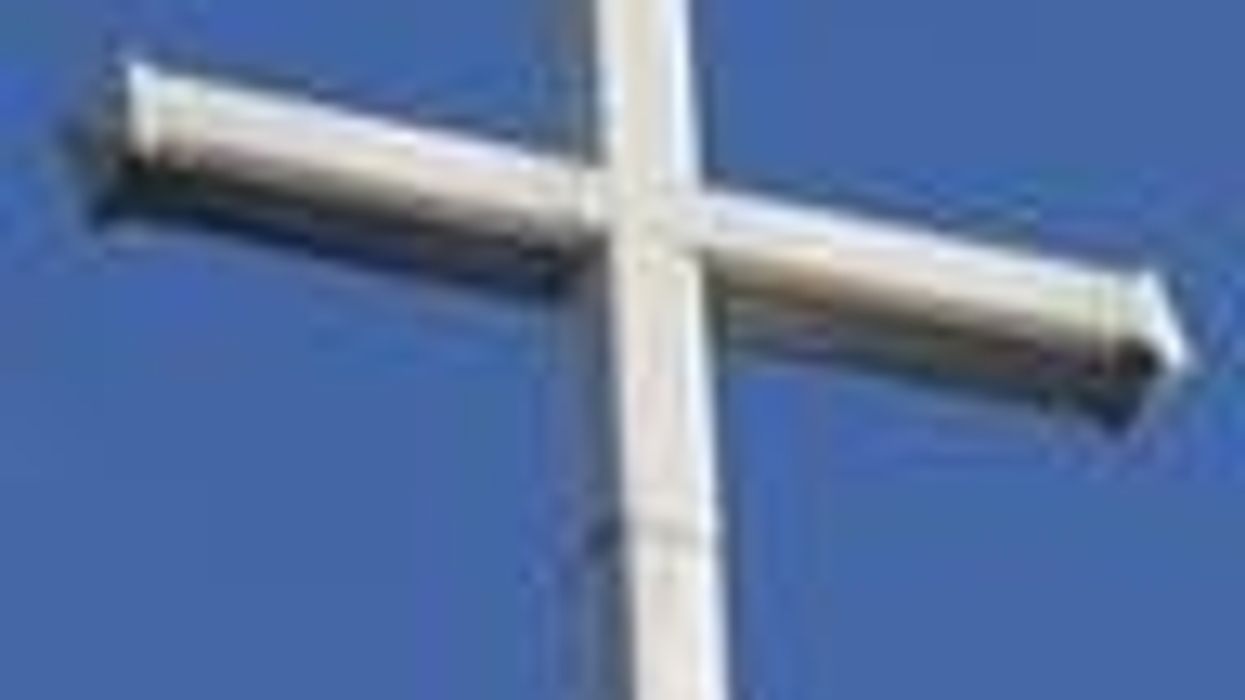Two of the most
prominent and largest Episcopal parishes in Virginia
voted overwhelmingly Sunday to leave the Episcopal Church
and join fellow Anglican conservatives to form a
rival denomination in this country. Truro Church in
Fairfax and the Falls Church (located in the city
of Falls Church) plan to place themselves under the
leadership of Anglican archbishop Peter Akinola of
Nigeria, who has called the growing acceptance of
same-sex relationships a "satanic attack" on the church.
Truro rector Martyn Minns was consecrated a
bishop by the Church of Nigeria earlier this year to
lead Akinola's Convocation of Anglicans in North
America. "This has been our spiritual home, so separating is
very hard," Minns said at a news conference announcing the
parishes' decision. "There's also the promise of a new
day. A burden is being lifted. There are new
possibilities breaking through."
Virginia bishop Peter Lee, a centrist, had won
praise even from his critics for his extensive
outreach to all sides in the conflict. He said Sunday
that the votes "had compromised these discussions and have
created Nigerian congregations occupying Episcopal churches."
Four other small Virginia parishes have also
left, six more voted to break away Sunday, and two
more will decide soon whether to follow suit,
according to parish leaders. None is as eminent as Truro and
Falls Church, however. The parishes together claim
more than 4,000 members, with roots they trace back to
colonial times.
A lengthy and expensive legal fight could erupt
over the Truro and Falls Church properties, which are
worth millions of dollars. "We fully intend to assert
the church's canonical and legal rights over these
properties," Lee said in a news release, calling it a "sad
day for the church."
Losing all the conservative churches could cost
the Virginia diocese approximately 10% of its 90,000
members. The Episcopal Church, the U.S. wing of the
global Anglican Communion, has been under pressure from
traditionalists at home and abroad since the 2003
consecration of the first openly gay bishop, V. Gene
Robinson of New Hampshire.
Under Anglican tradition, Akinola's move into
Episcopal territory amounts to an invasion, since
archbishops agree not to start churches outside the
borders of their own region. Episcopal presiding bishop
Katharine Jefferts Schori will consult with her
advisers on how the denomination should respond, said
Bob Williams, the national Episcopal spokesman.
While theological conservatives are a minority
within the 2.2 million-member U.S.
denomination, their protests have had an impact.
Ninety percent of Falls Church parishioners and 92% of Truro
members who cast ballots in the last week supported
cutting ties with the Episcopal Church, parish leaders said.
"It was a very, very emotional time," said Jim
Oakes, Truro's top lay leader, who supported the
split. "In some ways it's like a death in the family."
Nationally, Episcopal researchers estimate that
at least one third of the nearly 115,000 people who
left the denomination from 2003 to 2005 did so because
of parish conflicts over Robinson. Seven of the 100 U.S.
Episcopal dioceses have threatened to break from the
denomination but have so far stayed put. The closest
any have come to leaving was a vote earlier this month
in the Diocese of San Joaquin, in Fresno, Calif.,
endorsing a first step toward seceding. But that diocese
must take a second vote next year before it can
formalize a split.
The feud has been far more damaging to the 77
million-member Anglican Communion. Most
overseas Anglicans believe same-sex relationships violate
Scripture and contend that liberal interpretations of the
Bible are far outside the bounds of mainstream
Christian belief.
Struggling to hold the communion together,
Archbishop of Canterbury Rowan Williams, the Anglican
spiritual leader, has said that the communion may have
to create a two-tiered system of membership, with branches
that ordain partnered gays given a lesser status.
Akinola is among the conservatives who aren't waiting
for a negotiated solution. In a statement Friday,
Canon Kenneth Kearon, secretary-general of the Anglican
Communion, said that the archbishop of Canterbury has not
"indicated any support" for the mission. (Matthew
Barakat, AP)





































































Charlie Kirk DID say stoning gay people was the 'perfect law' — and these other heinous quotes